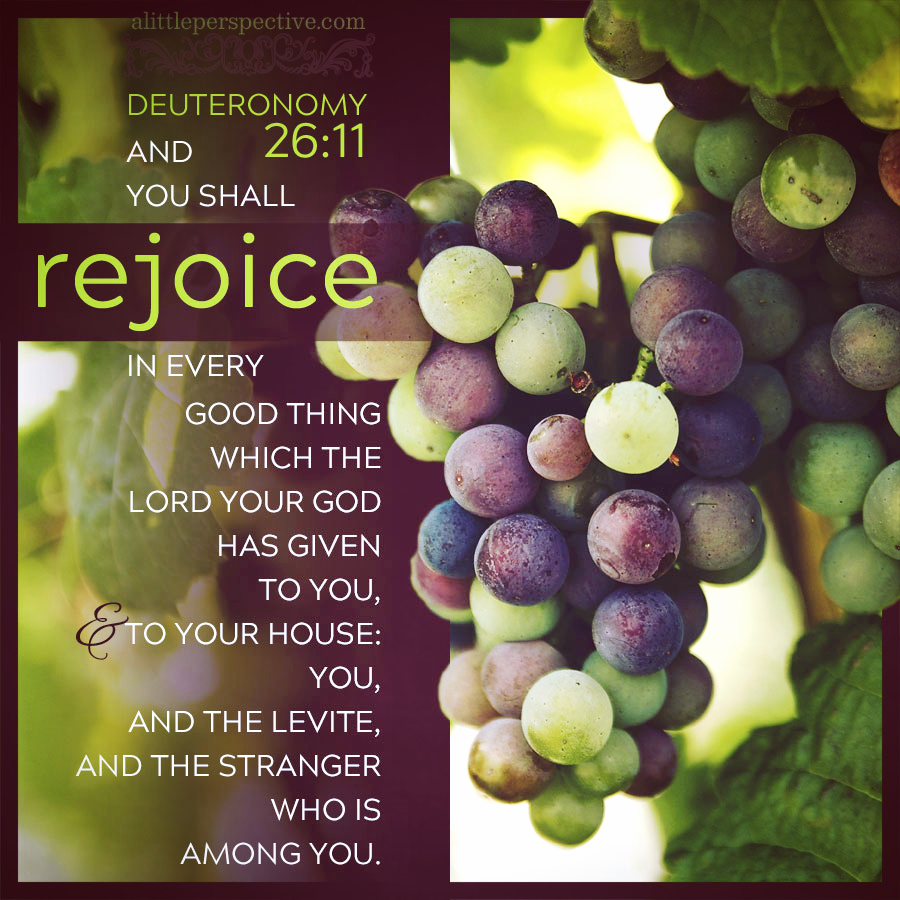Read Deuteronomy 25 and 26 at Bible Gateway.
The Hebrew paragraph divisions for today’s chapters are:
Deu 25:1-4 {s} Do not withhold what is justly due the wicked or the ox
Deu 25:5-10 {s} Do not withhold seed that is justly due the dead brother
Deu 25:11-12 {s} Do not withhold just punishment
Deu 25:13-16 {p} Do not covet gain from unjust weights or measures
Deu 25:17-19 {p} Do not withhold what is justly due to Amalek
Deu 26:1-11 {s} Do not withhold the firstfruits that are justly due
Deu 26:12-15 {s} Do not withhold the tithe of the 3rd year that is justly due
Deu 26:16-19 {p} Conclusion: walk in these commandments/ YHVH is your God; you are His people
Today’s chapters finish the explanation of the tenth commandment, Do not covet, by explaining we are not to withhold what is justly due to another.
Deu 25:1-12 {sx3} is more fully explained, with its chiastic structure, here.
Deu 25:13-16 {p} is more fully explained here (and yes, we uncover its root application to parenting!).
Deu 25:17-19 {p} is more fully explained here (what does God have against Amalek, whoever he is?).
Deu 26:1-15 {s+s} is more fully explained here, and the chiastic structure for the tenth commandment, is here.
We finally have our first p’tuchah marker, {p}, our strong theme marker, in several days worth of chapters. So let us catch up on the strong themes of Deuteronomy.
Deu 16:13-17:7 {sx4+p} begins in the explanation of the Sabbath commandment, and ends in the explanation of the Authority commandment. However, God considers it a single strong theme. The weak paragraphs: Tabernacles is holy to YHVH, while injustice, idolatrous groves and pillars, blemished sacrifices, and idolaters are all detestable to YHVH. That is the strong theme: The contrast between what is holy to Him, and what is detestable to Him.
Deu 17:8-19:10 {sx6+p} begins in the explanation of the Authority commandment, and ends in the explanation of the Do not murder commandment. The weak paragraphs: The authority of the priest, judge, king, Levites, and prophets, and the three cities of refuge. What can be the single strong theme? I believe it is, that the exercise of authority must be tempered with mercy, as Messiah, who is our High Priest, our Just Judge, our returning King of kings, and our prophesied Prophet like Moses, is also our City of Refuge from deserved death.
Deu 19:11-20:20 {sx5+p} all are weak paragraphs within the explanation of Do not murder, beginning with the murderer shall not find refuge, through not destroying fruit trees in warfare (do not commit murder by famine). The strong theme, is wisdom to prevent murder or its spread.
Deu 21:1-25:16 {sx43+p} might be the largest strong theme in Torah. It begins within the explanation of Do not murder, with the weak paragraph involving atonement for the unsolved murder, and ends with the paragraph explaining unjust weights and measures. So it spans explanations for all of the last five commandments of the Ten Commandments. What is the single strong theme? I believe it is, Do no harm to your neighbor, but love him as yourself. This is the summary of the Law, which Jesus and Paul taught us (Mat 7:12, Rom 13:10).
Then the final puzzle, after the strong paragraph of war with Amalek (God is serious about us not laying down in front of the enemy and letting him walk on us, but in resisting him until he flees from us, apparently!):
Deu 26:1-19 {s+s+p} Not withholding what is justly due, and the conclusion to the explanation of the commandments: the admonition to walk in them, as YHVH is our God, and we His people. But what is the single strong theme? Beloved, as God’s people, our obedience to His commandments is what is justly due to Him, as our God. Let us not withhold the Lord’s just due from Him! ♥

















Leave a Reply